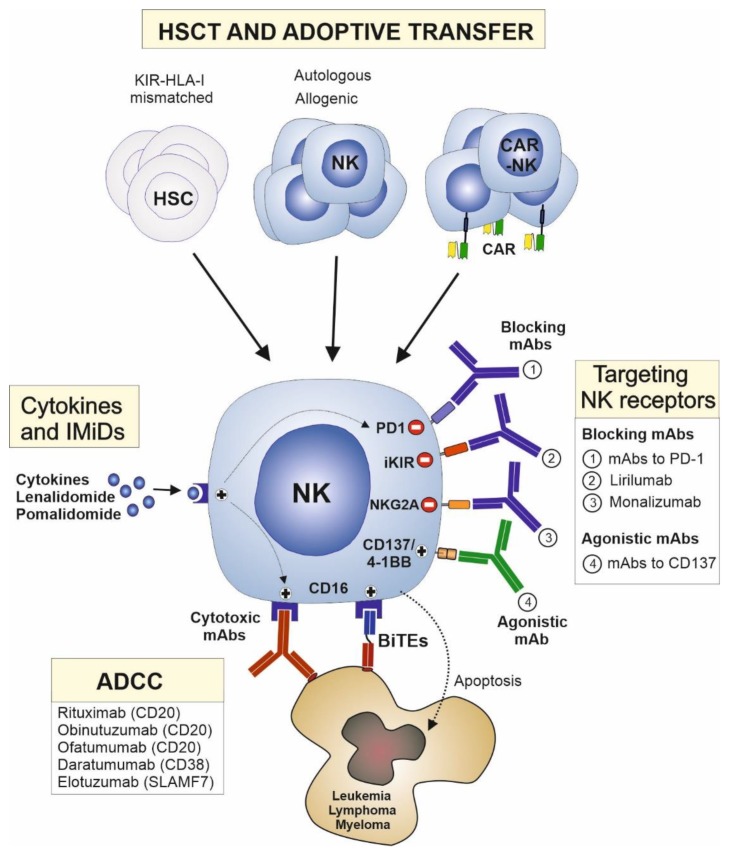Figure 2.
Therapeutic approaches involving natural killer (NK) cells to treat hematological cancers. Cytotoxic mAbs that engage CD16 receptors on NK cells and induce antibody-dependent cell-mediated cytotoxicity (ADCC) are the most widely used NK cell-based therapies in hematological cancers. The so-called bispecific antibodies (BITE) may improve ADCC activity by redirecting NK cells to tumor cells. NK cells, and particularly allogenic NK cells that are devoid of inhibitory KIRs for donor´s HLA class I molecules, play a key role in the therapeutic efficacy of hematopoietic stem cell transplantation (HSCT). Alternatively, NK cells may be expanded, activated, or redirected against cancer cells (chimeric antigen receptor (CAR)-NK cells) ex vivo and adoptively transferred to patients with hematological cancers. The antitumor activity of NK cells may also be stimulated by cytokines or immunostimulatory drugs such as lenalidomide or pomalidomide. Due to their capability of stimulating NK cell activity and ADCC, they may have synergistic effects with therapeutic mAbs. Blocking antibodies directed against inhibitory NK cell receptors, including inhibitory KIRs (iKIR) (lirilumab) or natural killer group 2A (NKG2A) (monalizumab), and checkpoint proteins, including programmed death-1 (PD-1), have great clinical potential in this type of malignancies. Similarly, agonistic antibodies targeting T and NK cell costimulatory molecules, such as cluster of differentiation 137 (CD137)/4-1BB, are novel therapeutic alternatives for cancer therapy. HSC, hematopoietic stem cell; IMiDs, immunomodulatory drugs; mAbs, monoclonal antibodies. SLAMF7, SLAM family member 7.

